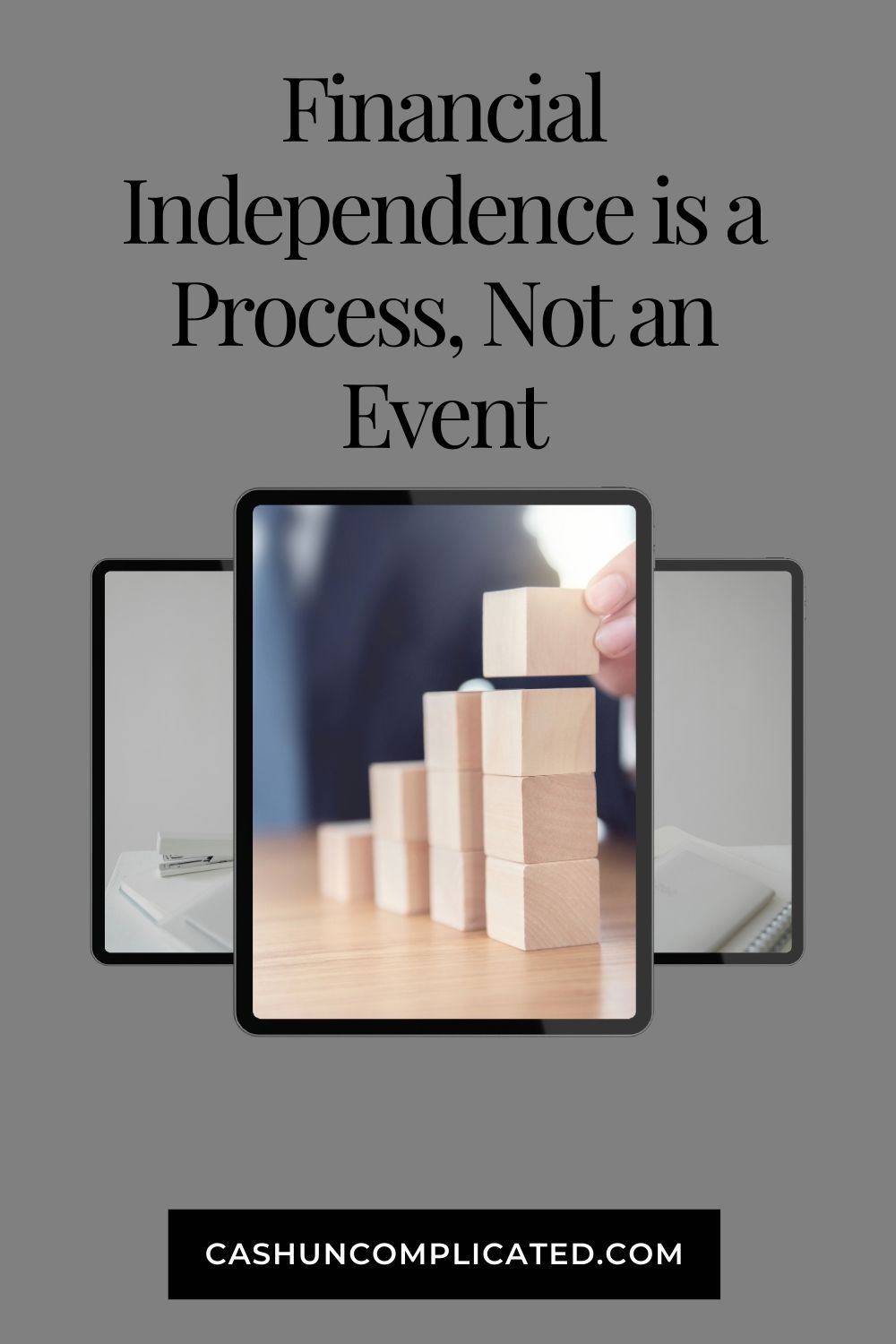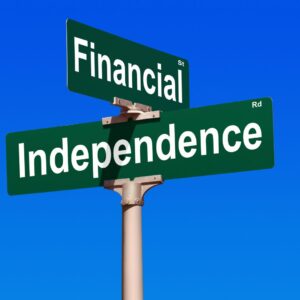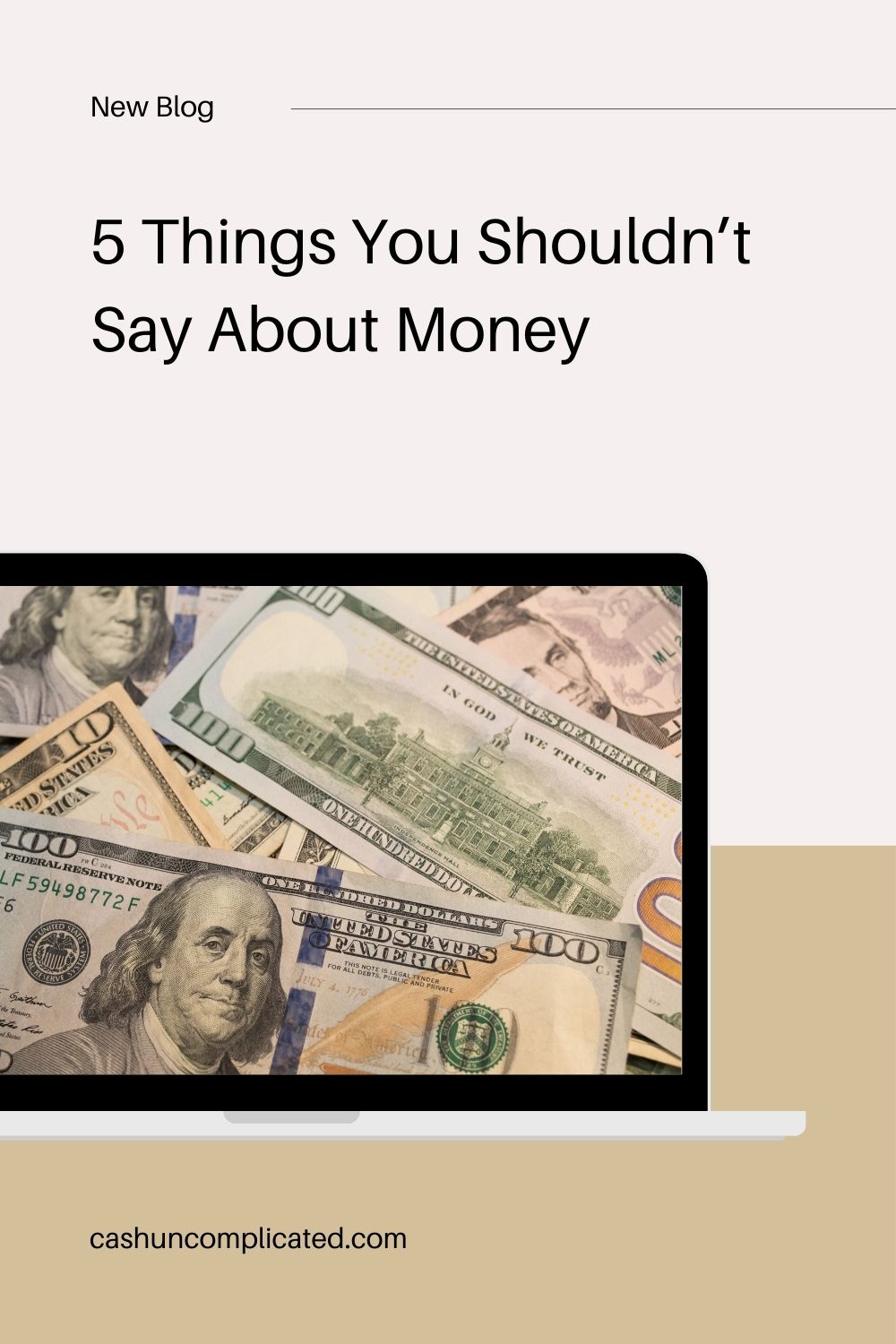Someone running a marathon or playing a basketball game has a clear way to win. There’s a finish line at the end of the marathon–cross it in less time than others and you win. Have more points than the other team in a basketball game and your team wins. But with money, specifically financial independence, it’s a process and not an event.
What is Financial Independence?
Financial independence is having enough money to sustain your lifestyle without having to work for additional money. Someone can always choose to work more, but it’s not necessary to pay the bills.
Financial independence is often used interchangeably with other words/phrases such as:
- Financial freedom
- Financially free
- Independently wealthy
- Retired
Basically, if your monthly income exceeds your costs, you have reached financial independence
Examples
Here are a few examples of financial independence.
Tommy has $4,600 per month in expenses including housing, food, etc. He receives $3,200 per month in cash flow from two rental properties. In three years he is scheduled to begin receiving $2,000 per month from Social Security.
In the meantime, he is withdrawing $2,000 per month from his stock portfolio. Once he begins taking from Social Security, he plans on reducing the monthly withdrawal from his stock portfolio to $1,000 per month.
Tommy currently is receiving $3,200 per month from rental income and $2,000 per month from his stock portfolio. That’s $600 more per month than his expenses. When he begins collecting Social Security he will be receiving $6,200 per month from his rental income, Social Security and stock portfolio. $1,600 more than his expenses.
Janice has two million dollars invested in a mix of stocks and bonds. Being conservative, she adheres to the 4 Percent Rule. In her first year of financial independence, she withdrew four percent of her portfolio, which is $80,000 or $6,667 per month.
With a paid off house and no consumer debt, her monthly expenses are only $4,900 per month. This includes food, utilities, health insurance, travel, entertainment, etc. The $6,667 per month she is withdrawing pays for all that and more. Janice is financially independent with a good sized margin for error.
What Most People Think
Most people think about life in terms of events. Finish the race, complete a week of work, turn another year older, etc. However, financial independence doesn’t work that way.
There is no true marker for financial independence. It’s simply when income has exceeded costs–and costs can be hard to clearly define since they fluctuate. Plus there’s the added piece of someone’s comfort level, which often has nothing to do with actual expenses.
For people expecting a ribbon when you cross the finish line, think again. Many people don’t realize they are financially independent until well after they have reached it. Nobody tells you that you’ve reached it and there’s no ceremony with balloons and confetti.
Oftentimes it kind of creeps up on you until you run the numbers and realize you have hit your target.
The Process of Financial Independence
Financial Independence is a process. It starts with knowledge, then moves to action. Once a plan is in place and the actions begin, the process is well underway. It’s just a matter of time.
The beauty of the process is there are events along the way. What I mean by that is you don’t go from no money straight to financial independence.
You’re going to hit several milestones along the way. Events like your first emergency fund of three to six months (or more), hitting your first $10,000 invested, reaching $100,000, hitting millionaire status, etc. Each event is special and a marker of your positive choices and progress.
With each event, you also reach a new level that never existed before.
For example, after your emergency fund is fully funded, you’ll feel a sense of relief that a job loss or major emergency isn’t going to completely derail you. It’s going to hurt, but not nearly as bad if you didn’t have those funds available. Same for your first $100,000 invested. It just feels great to have that money invested knowing that compounding is working for you.
The Reality of Financial Independence
There’s a saying that success goes in a squiggly line, not a straight one. The same thing goes for financial independence. There’s not a straight line going from zero to financial independence in a short span.
It’s a squiggly line with trials and tribulations. Plus, it’s almost never just one event where suddenly you are financially independent.
The Most Valuable Things About Financial Independence
To paraphrase what Jim Rohn said of becoming a millionaire: It’s about what you become in the process that is the most important thing. The money and financial independence are great, but what became in the process is the most important thing.
I would even argue that what you become in the process is the most important thing. Nobody can ever take away the knowledge, wisdom, or experience it took to get there.
Related: It’s Not Just About the Money: It’s What You Become in the Process
Bonus: Re-Allocation of Resources to Create Financial Independence
Here’s another one that might take you by surprise. Many people can become financially independent with one or two big moves. Here’s an example. Take someone living in a high cost of living area like New York, the Bay Area, or Southern California.
They have a paid off house (or nearly paid off) that is worth more than a million dollars. This person is living comfortably in the house but continues to work and doesn’t even have financial independence on the radar.
Let’s say the house in the high cost of living area is worth 1.2 million dollars. If they sold that house and netted around $900,000 after expenses and capital gains, then downsized out of state to a house or condo that costs under $500,000 they would have over $400,000 in cash. That amount of money could easily be the tipping point to financial independence if they already have other investments.
Or they could keep the house and rent it for $5,000+ per month and live in a lower cost of living area. Then keep the several thousand dollars extra every month. Many people are in this type of situation and don’t even realize it.
Conclusion
Financial Independence is a process, not an event. We are in a results-oriented world where everyone wants everything yesterday. If there was a magic pill you could take to become financially independent, it would sell out in the first ten minutes.
In line with the cliché about enjoying the journey, that’s exactly what everyone should do on their path to financial independence. Enjoy the journey, celebrate the stops along the way, and embrace the transformation you make as a person along the way.
How do you view financial independence?







